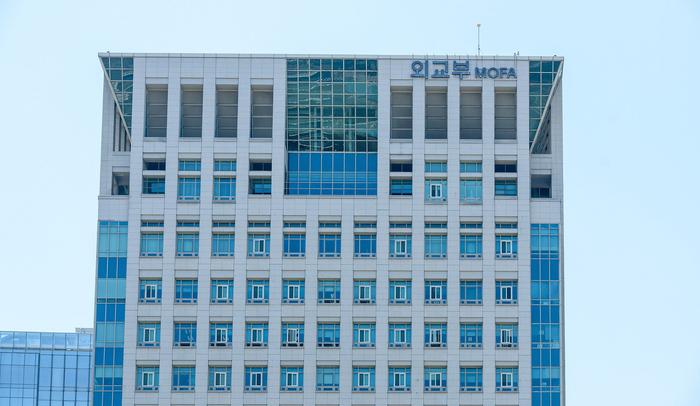
On the 9th local time, the South Korean Ministry of Foreign Affairs stated that the South Korean government will continue to adhere to the effective 12th “Defense Spending Share Agreement” between South Korea and the United States.
△South Korean Ministry of Foreign Affairs building (Archive photo)
During a cabinet meeting held at the White House on the 8th local time, President Donald Trump stated:
“South Korea should bear its own defense costs,” and advocated for increasing the annual stationing expenses of U.S. troops in South Korea to $10 billion.
In response, the South Korean Ministry of Foreign Affairs stated on the 9th that the 12th “Defense Spending Share Agreement” contributes to ensuring a stable stationing environment for U.S. troops in South Korea and strengthens the joint defense posture between South Korea and the United States.
The South Korean government will continue to comply with and implement the effective 12th “Defense Spending Share Agreement.”
Regarding foreign leaders’ statements, the South Korean government should not respond or evaluate each one individually.
The 12th “Defense Spending Share Agreement”
On October 4, 2024, the South Korean Ministry of Foreign Affairs announced that South Korea and the United States have reached an agreement on the 12th “Defense Spending Share Agreement.”
According to information released on the official website of the Ministry of Foreign Affairs on the same day,
The agreement is valid from 2026 to 2030.
In 2026, South Korea will bear 1.5192 trillion won (approximately $11.34 billion), an increase of 8.3% compared to 2025.
There are about 28,500 U.S. troops stationed in South Korea. The defense spending primarily covers the salaries of Korean employees in U.S. military units, the construction of military facilities, and the procurement of military supplies. The 11th “Defense Spending Share Agreement” reached in 2021 stipulated that the annual growth rate of defense spending by South Korea would be positively correlated with the growth rate of South Korea’s national defense expenditure. This agreement has been revised to be linked to the consumer price index (CPI) in South Korea and has set a cap at 5%.